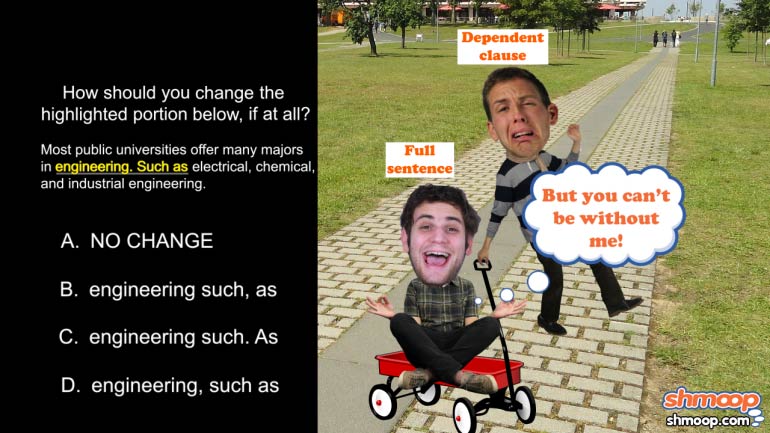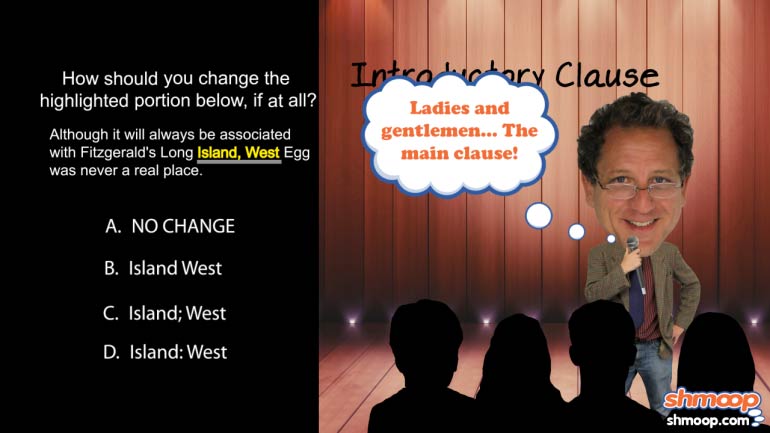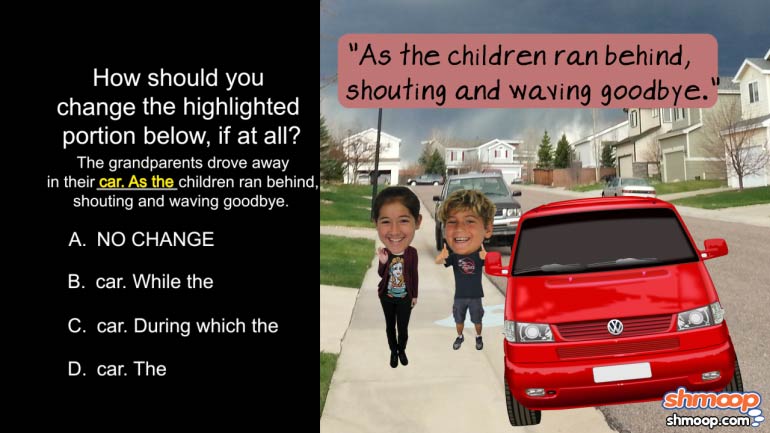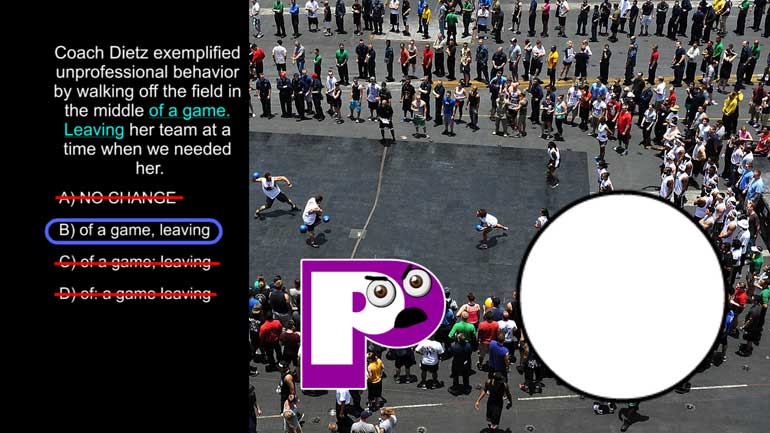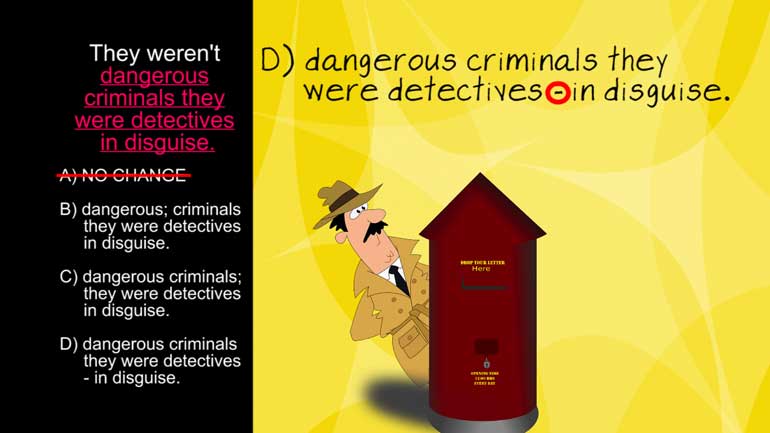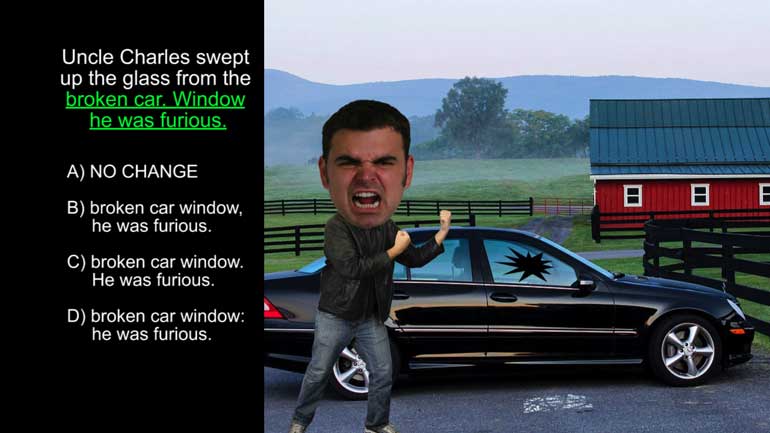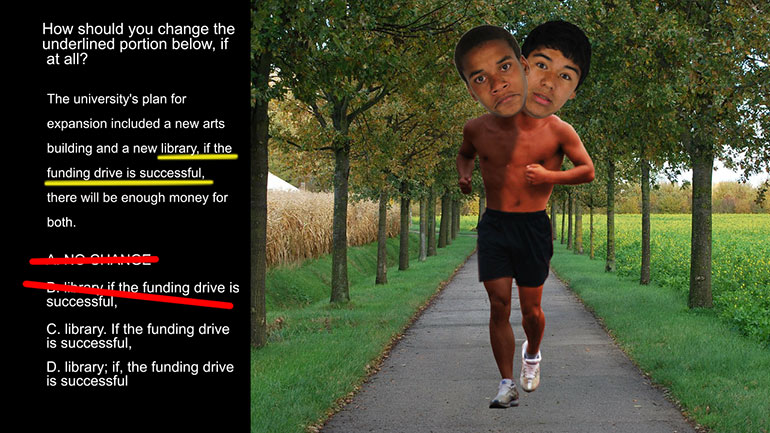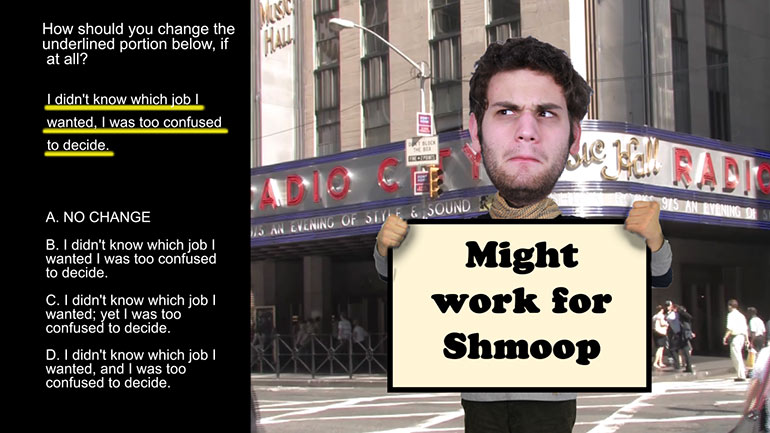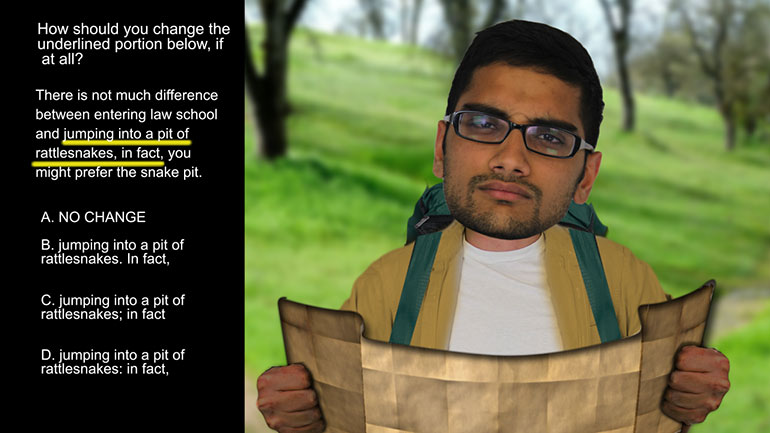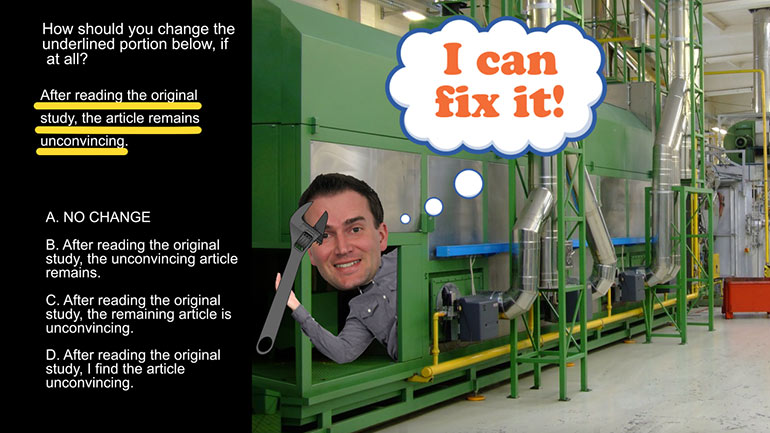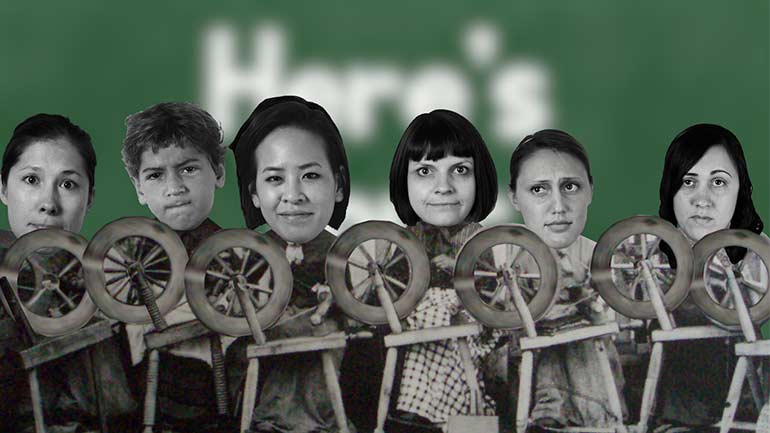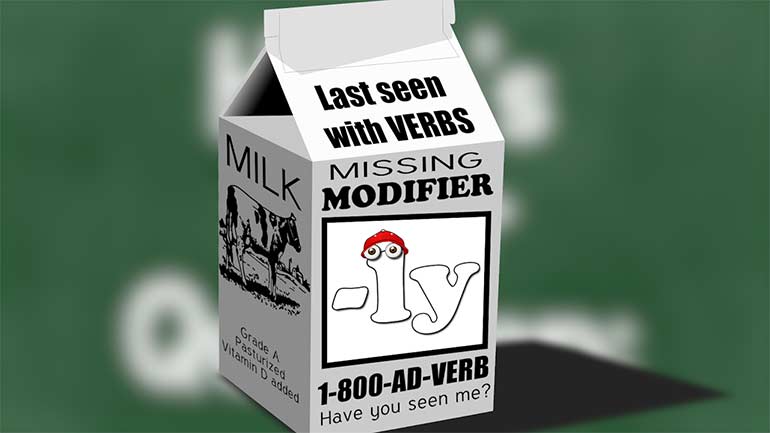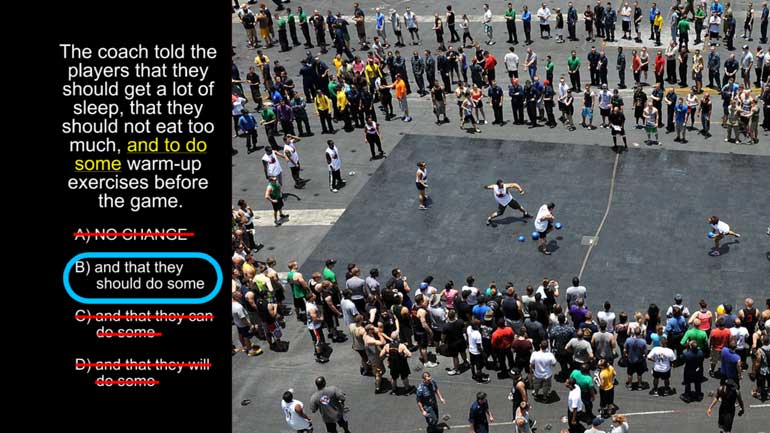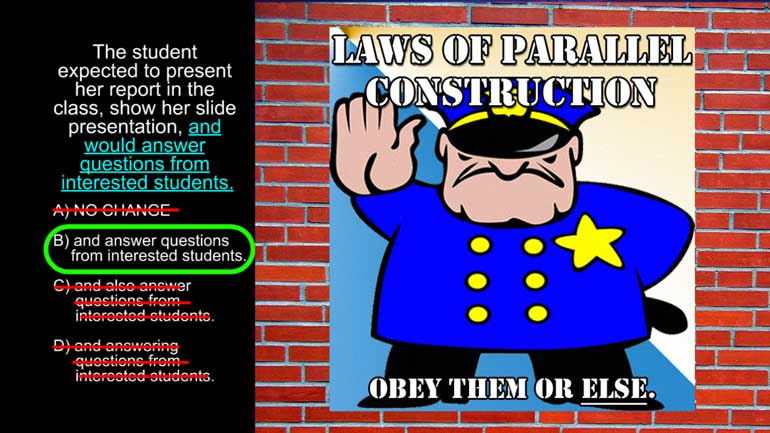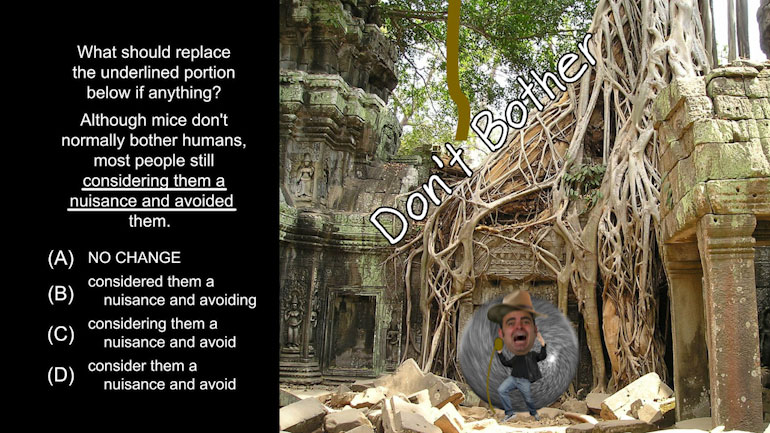ShmoopTube
Where Monty Python meets your 10th grade teacher.
Search Thousands of Shmoop Videos
Playlist ACT® English: Sentence Structure 25 videos
ACT English: Sentence Structure Drill 1, Problem 1. Properly punctuating dependent clauses.
ACT English: Sentence Structure Drill 1, Problem 2. What punctuation do we need between these clauses?
ACT English: Sentence Structure Drill 1, Problem 3. Proper word choice for independent clauses.
ACT English 2.2 Sentence Structure 298 Views
Share It!
Description:
ACT English: Sentence Structure Drill 2, Problem 2. Which punctuation mark best breaks up the sentence?
Transcript
- 00:03
Here's your Shmoop du jour, brought to you by the comma splice. A member of the lesser
- 00:08
known group The Splice Girls.
- 00:11
How should you change the highlighted portion below, if at all?
- 00:14
Uncle Charles swept up the glass from the broken car. Window he was furious.
- 00:26
Looks like Uncle Charles has a few anger management issues.
Full Transcript
- 00:30
It also looks like we have a case here of two independent clauses that are incorrectly
- 00:34
divided.
- 00:34
We can take choice (A) out of contention right from the get-go. Placing a period between
- 00:38
"car" and "window" doesn't make any sense and just sounds weird, to boot.
- 00:42
In this case, "car" is clearly an adjective that is trying to describe the noun "window."
- 00:46
Putting a period between the two is total craziness.
- 00:49
Plus, starting the second sentence off with, "Window he..." is just plain gobbledygook.
- 00:54
The two intended independent clauses here are, "Uncle Charles swept up the glass from
- 00:59
the broken car window," and "he was furious."
- 01:02
Choices (B), (C), and (D) all seem to agree, because each one places a punctuation mark
- 01:07
between "window" and "he."
- 01:09
Their solidarity doesn't last very long, though, because they disagree with each other as to
- 01:12
which kind of punctuation should be used.
- 01:15
Choice (B) actually pulls a big no-no by trying to connect the two independent clauses with
- 01:19
nothing but a comma.
- 01:20
This typical grammatical mistake is called a "comma splice," and it"s to be avoided at
- 01:24
all costs.
- 01:25
We find ourselves in a bit more of a gray area with choice (D).
- 01:29
Colons can be used to connect two independent clauses. So it's not like (D) is totally and
- 01:33
completely incorrect.
- 01:34
However, when we use a colon to connect two independent clauses, we're signaling that
- 01:38
the second clause is an explanation of the other.
- 01:41
Even though the two clauses are technically independent, it should feel like one needs
- 01:45
the other.
- 01:46
Choice (C) is the correct answer because it uses a period to separate our two independent
- 01:50
clauses, allowing each of them to stand on their own.
- 01:53
P.S. We're taking up a collection to get Uncle Charles some anger management classes, if
- 01:57
anyone's interested...
Related Videos
ACT English: Punctuation Drill 2, Problem 2. Where should the semi-colon be placed?
ACT English: Punctuation Drill 3, Problem 1. How should this sentence be changed so that it is grammatically correct?
ACT English: Punctuation Drill 3, Problem 2. How should we properly hyphenate the words in this sentence?
ACT English: Punctuation Drill 3, Problem 4. Which choice best formats this list of items?
ACT English: Punctuation Drill 2, Problem 1. Which choice of punctuation best completes the sentence?
